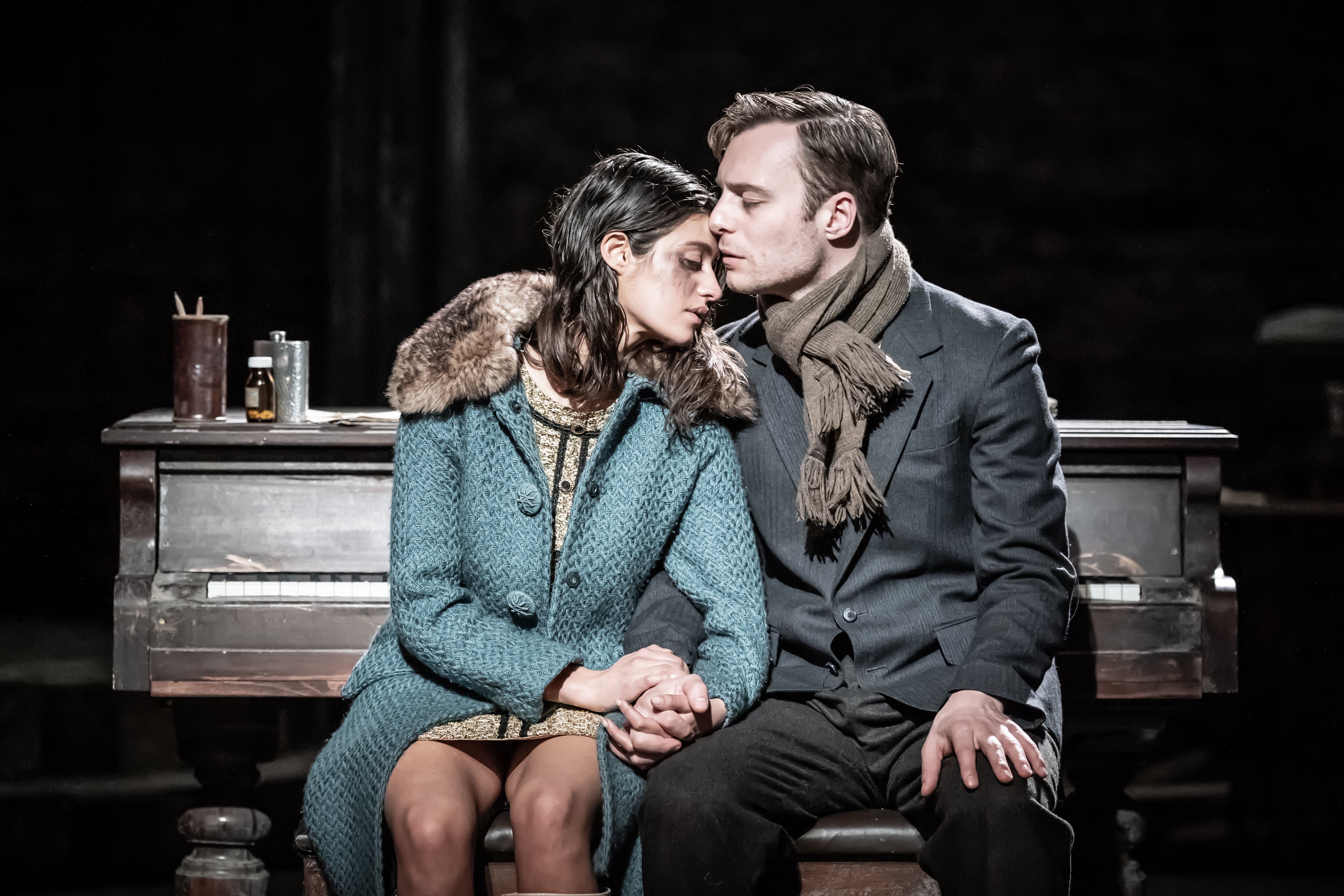Cold War review: Stylish staging of love in post-war Poland is strangely rootless
Elvis Costello’s tame songs and Rupert Goold’s detached, hip production make this stage adaptation of Paweł Pawlikowski’s 2018 film lack its original warmth and richness

In a season of red-ribbon-wrapped happy endings, Cold War serves up a jarringly gloomy kind of love story. Its protagonists meet in post-war Poland, then get trapped on opposite sides of the Iron Curtain, each fatally obsessed with a life that’s always out of reach. Rupert Goold’s stylish Almeida staging of Paweł Pawlikowski’s 2018 film is full of abrasive chemistry and rough magic. But it still feels like a slightly bizarre, rootless enterprise, especially when you factor in its tame and very un-Polish score of songs (new and existing) by Elvis Costello.
Costello’s tunes have a gentle melancholy that’s at odds with the raw, self-destructive agony of this story’s lovers – and that’s easily overpowered by the impassioned Polish songs they spend their careers singing. Conor McPherson’s book deftly sketches their collision course. Zula (Anya Chalotra) hears that casting is underway for a new folk troupe, designed to raise peasant culture in newly Communist Poland, so she turns up with ambition burning in her eyes. Odd and forceful, Chalotra is every inch the woman who sleeps with a knife under her pillow and pummels the world into loving her. Her singing talent is channelled by composer Wiktor: Luke Thallon becomes her affable, easily dominated foil, forever half-smiling as though bemused by the mess his life has become.
The early scenes are bewitching. Simon Hale’s arrangements of Polish folk songs set the theatre ringing with discordant harmonies, while Goold’s direction captures the tensions that underscore them in pacy scenes. Soon, this troupe is under pressure to sing about the virtues of Soviet agricultural machinery, instead of the more ancient lures of love and the devil. And Wiktor starts to imagine a different life, escaping into the western side of Berlin on the night of this group’s greatest concert to date.
Subscribe to Independent Premium to bookmark this article
Want to bookmark your favourite articles and stories to read or reference later? Start your Independent Premium subscription today.
Join our commenting forum
Join thought-provoking conversations, follow other Independent readers and see their replies